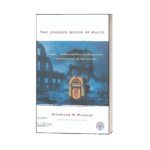When I picked up The Kappillan of Malta by Nicholas Monsarrat, I expected a sweeping story of our islands in wartime, and in many ways that is what I got. It’s an important book, certainly, and one I’m glad I read, but it left me with as much frustration as admiration.
About the book
Father Salvatore was a simple, lumbering priest, a Kappillan serving the poor Valetta, when war came out of the blue skies to pound the island to dust.
Now amid the catacombs discovered by a chance bomb, he cared for the flood of homeless, starving, frightened people who sought shelter from the death that fell unceasingly from the sky.
His story, and the story of Malta, is told in superbly graphic pictures of six days during the siege. Each of those days brought forth from the Kappillan a message of inspiration to keep them going – the legendary tales of six mighty events of Malta’s history which shone through the centuries and gathered them together in a fervent belief in their survival.
My honest review
When I picked up The Kappillan of Malta by Nicholas Monsarrat, I expected a sweeping story of our islands in wartime, and in many ways that is what I got. The opening scenes of people huddled in the catacombs while bombs rained down are unforgettable raw, tense, and deeply Maltese. Father Salvatore himself is drawn with tenderness, a man of contradictions: once from privilege, now a shepherd to ordinary people, carrying their fear and their faith. And the way Monsarrat threads Malta’s history into the narrative: St Paul, the Knights, the sieges, it gives the book a grand sense of continuity, as if all of our past was pressing into that one terrible moment of 1942.
But for all its ambition, I found the novel often heavy going. Monsarrat lingers on historical digressions that, after a while, feel like lectures rather than story. Convoys, naval battles, whole passages of background—impressive research, yes, but at times they bury the human voices that should carry the novel. The pace slows, and the urgency of the characters’ lives slips away under the weight of history.
I also struggled with the characterisation beyond the kappillan himself. Too many figures felt thin or predictable: the aristocratic mother, the idealistic youths, the inevitable love story between a Maltese girl and a British pilot. These threads didn’t convince me. They seemed there to tick boxes rather than to deepen the novel’s truth. Even Salvatore’s own inner conflicts, which could have made him a far more complex figure, were hinted at more than explored. By the end, I was left with the sense of a powerful idea not quite fulfilled, a portrait of Malta during the war that wanted to be both epic and intimate but didn’t manage to sustain both at once.
There are passages of beauty and undeniable pride here, moments that remind you of what our people endured. But there are also long stretches where the story loses its hold, weighed down by a style that hasn’t aged well and a view of Malta and its people that sometimes feels too neat, too heroic, too uncomplicated. It’s an important book, certainly, and one I’m glad I read, but it left me with as much frustration as admiration.
Book details
- ISBN: 978-0304358441
- Print length: 464 pages
- Other info: see tags below (author, location language & year of publication)
If you love this, you might also enjoy…


